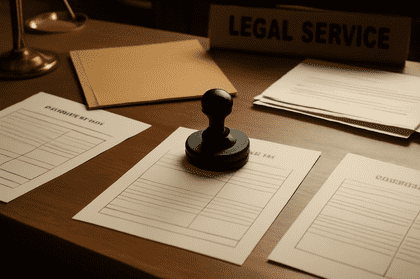


Learn how to file a copyright application, register your work in India, and protect your creative assets with expert legal guidance. Read more!
Creativity has always been one of the driving forces behind human progress. From books and music to films, software, and digital content, original works not only shape culture but also build economic value. In India, copyright law ensures that creators have the legal tools to safeguard their intellectual property from unauthorized use. However, many innovators and businesses are still unaware of how the copyright application process works or why professional support is essential for securing their rights.
This guide explores the essentials of copyright law in India, registration procedures, benefits, and how specialized services make the process smoother for creators and organizations.
Copyright grants creators exclusive rights over their original works. These rights include reproduction, communication to the public, adaptation, and distribution. In India, the Copyright Act, 1957 governs the protection of creative works.
Unlike patents or trademarks, copyright does not protect ideas but the expression of ideas. For instance, the concept of a love story cannot be copyrighted, but a novel or film based on it can.
The copyright registry in India is the official government body that records copyrights and maintains the database of registered works. Registration is not mandatory for protection since copyright exists automatically upon creation. However, registration provides strong legal evidence in case of disputes, making it much easier to prove ownership.
The registry issues a certificate of registration after examining the application. This document acts as prima facie evidence of ownership in courts, which can be decisive during infringement claims.
The copyright registration in India follows a structured legal process:
The process typically takes six to twelve months, depending on objections and backlog at the registry.
The process can be complex for creators unfamiliar with legal requirements. This is why professional copyright registration services in India play a critical role. Legal experts assist by:
For businesses that rely heavily on content—such as publishing houses, film studios, software companies, and marketing firms—having expert support can save time and avoid costly disputes.
While the law is robust, there are practical challenges such as:
Digital platforms have revolutionized how content is created and consumed. With this comes greater exposure to infringement, plagiarism, and piracy. Registered copyright is a crucial safeguard for creators in the online world. It allows them to take quick action through legal notices, takedowns, and litigation.
Additionally, businesses engaged in e-learning, app development, or entertainment streaming services must ensure that their intellectual property is protected before going public.
In a world where creativity drives both cultural and economic growth, copyright protection has never been more vital. Registration strengthens ownership claims, provides legal remedies, and enhances the commercial value of intellectual property. Whether you are an author, artist, filmmaker, or entrepreneur, securing your creative works through proper legal channels is essential for long-term success.
With years of expertise in intellectual property law, AMD LAW INDIA offers trusted guidance and comprehensive support for copyright filing, enforcement, and advisory services, helping creators and businesses protect their innovations with confidence.
Q1: Is copyright registration mandatory in India?
No, copyright exists upon creation, but registration provides stronger legal evidence.
Q2: How long does copyright last in India?
For literary, musical, and artistic works, it lasts for the lifetime of the author plus 60 years after their death.
Q3: Can I apply for copyright online?
Yes, the Indian Copyright Office offers an online filing facility.
Q4: What happens if my application faces objections?
The registrar may schedule a hearing. Having a legal expert increases the chances of successful resolution.
Q5: Does Indian registration protect my work globally?
Yes, under treaties like the Berne Convention, protection extends internationally.
Q6: Can software be protected under copyright in India?
Yes, computer programs are protected as literary works under the Copyright Act, 1957.
Q7: What documents are required for copyright registration?
Applicants need copies of the work, identity/address proof, and, if applicable, a power of attorney when filed through an agent.
Q8: How much does copyright registration cost in India?
Fees vary depending on the type of work (literary, artistic, software, etc.) and whether the applicant is an individual or a company.
Q9: Can a registered copyright be transferred or sold?
Yes, copyright can be assigned or licensed through an agreement, enabling the owner to monetize their work.
Q10: What legal remedies are available in case of infringement?
Owners can file civil suits for injunctions, damages, and delivery of infringing copies, along with criminal proceedings in serious cases.
